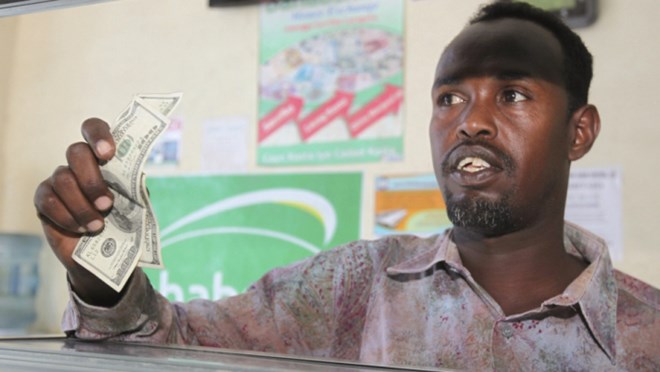
By Obinna Umeh
Friday April 22, 2022

The money transfer market in Somalia is one of the most
advanced in the world, characterised by citizens both home and abroad
transferring billions of dollars in remittances every year. The money transfer
market has helped the local population to be able to send and receive money
easily from their relatives outside the country and remote workers working for
foreign companies to receive their salaries.
According to World Bank data released in 2017, it is
estimated that 73% of the population above 16 years of age use mobile money
services, making Somalia one of the most dynamic money markets in Africa and
worldwide. The money transfer concept in Somalia was introduced into the
country 10 years ago, and despite the short Introduction, over 63% of all
payments in Somalia rely on mobile money payment platforms.
The financial service keeps developing in Somalia and has
positively impacted the country's economic sector in financial technology.
Hormuud, Somalia's leading mobile money provider, just obtained GSMA mobile
money certification in March 2022 - this is a global standard of telecoms
excellence and a big win for the country.
Adoption of Mobile
Money Services in Somalia
According to developers, major factors which triggered the
country's intake in money transfers were due to poor operating environment,
unreliable banking systems and a lack of policy implementation. These
consistent deforms made financial transactions difficult in the country, as
well as many other African countries.
At this time, they adopted the Hawala system but the system
wasn't too convenient for them. Money transfer service platforms in Somalia
have made financial transactions easier, less expensive and more reliable for
the country and Africa at large. Platforms like World Remit have been used
across many African countries. The Somalian fintech company has indeed been a
lifesaver for many users.
Challenges faced in
the Mobile Money Market
Somalia has suffered from challenging and failing financial
markets over the years with no substantial effort from the government. The
government couldn't be trusted because of armed conflict and some parts of the
country that were under the rule of terrorism. The Citizens being affected by
the system had to do something that could help their financial sector. They
adopted the hawala money transfer system, a popular method in Somalia before
mobile money was introduced.
The major reason why many Somalians left the hawala system
for mobile money is that the hawala system was highly costly, sometimes inefficient
and had some limitations on structures associated with Somalia's Legacy banking
system. World Remit, one of the most popular mobile Money Transfer companies in
Somalia was founded in 2009 by an entrepreneur who was discouraged by the lack
of remittance options when he arrived in the UK as a refugee. According to him,
he found it difficult to send money to his family back home in Somalia.
Another key reason why Somalia didn't rely on the country's
financial service was the fact that the Somalia shilling was very unstable and
the International Monetary Fund(IMF) says that around 98% of the local currency
in circulation is fake. This led to mobile money almost replacing shilling in
some parts of the country. Research shows that about 155 million financial
transactions are done in a month in Somalia alone, a country of around 17
million people. Most people keep their money in a digital wallet instead of a
physical bank.
Despite the optimistic values mobile money has brought to
the faces of Somali, the platform also faces some challenges. One main problem
is the lack of regulations for mobile money. This has sparked concerns that
illegal finances are being done on the platform hence it is not securely
regulated. It is also claimed that the open and free platform may be supporting
the terrorist group, Al-Shabaab.
Though the FinTechs in Somalia are already working on
regulating the flow of money in and out of the country using mobile money.
Rage, a financial analyst, said that private companies are doing their best to
deploy checks and balances. A good instance is Hormund, which received
Somalia's first GSMA mobile money certification; this puts Hormund among the
top mobile money providers in Africa for safety and security. They are also
trying to adopt know your customer (KYC) requirements for the identification of
their users.
Despite the lack of regulation, mobile money service
platforms in Somalia keep evolving for the better. Rage also explains that
mobile money in Somali is digital and not internet-based. Mobile Money
platforms are developing to make their service providers available to both
digital and internet-based users.